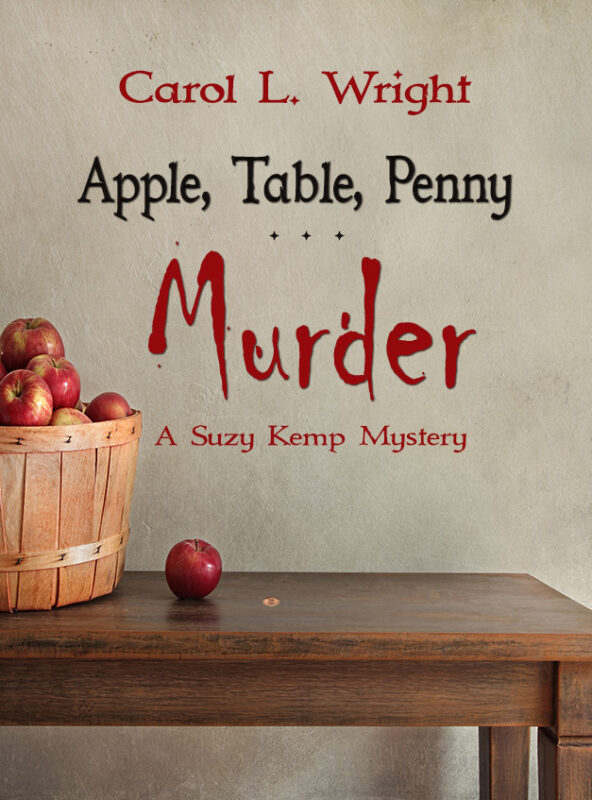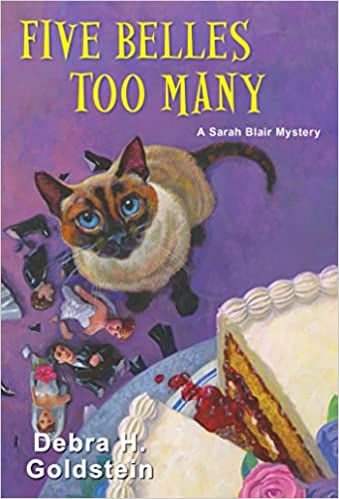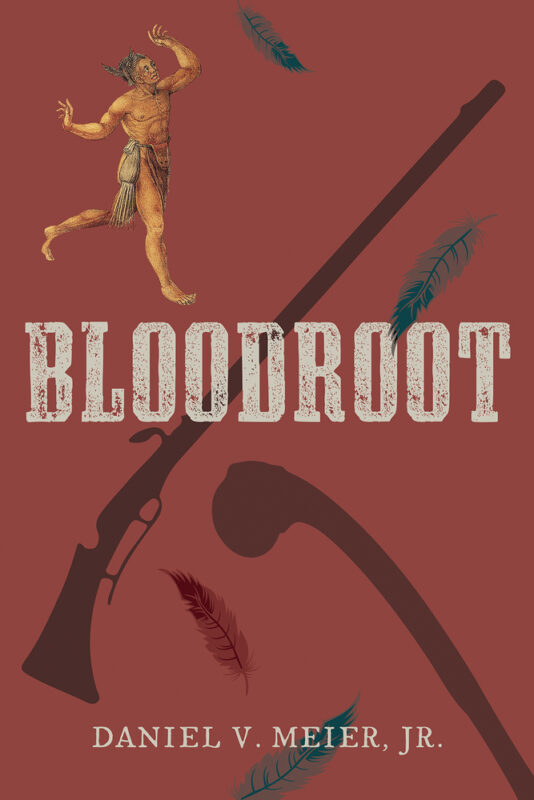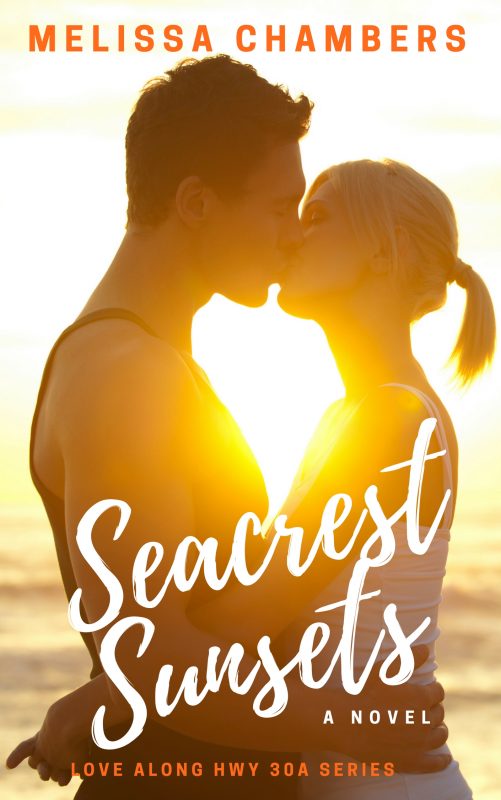Why it’s Important to Have a Blog and What to Write About
April 12, 2020 by Denise M. Colby in category The Writing Journey by Denise Colby tagged as Denise M. Colby, SEO MarketingWriting a blog takes time away from writing your books, but a blog is something an author shouldn’t go without. Why is it important to have a blog and what do you write about? I’ll go over both of those questions in this post.

Just know, the most important reason for a blog, is your brand.
If done correctly, blog posts can help build your brand.
And your brand will thank you for it.
Here are four ways a blog helps build your brand:
1. You choose what your write about.
All of the parts in your stories build brand because this is what your books are about. Readers choose your books because of the genre, setting, characters, era, and other details, so why wouldn’t they be interested in learning more about those things in blog posts?
Don’t share where your book is being sold (unless it is a new release), but you can share about research, or why a character likes the color blue, or even a theme of your book (When the Plan Does Not Go According to Plan) which all relates back to your books. It might even help new readers to go search for your book and buy it.
2. Build relationship with your readers.
It takes a long time for a new book to hit the market, so connecting with your readers frequently keeps you in their minds.
Build excitement for the next book by sharing a little about your characters or other topics (see point #1) in your books.
You can also connect with your readers about topics that are near and dear to you. Being a Disney fan, I’m working on building blog posts related to my favorite things about Disney.
3. Build interest in your new books as well as your previous ones.
By connecting with readers, they can learn more about you and your books. A blog post about a past book and how much a specific character was your favorite to write about, or a trip you took to conduct research and your favorite sites, might encourage a reader to buy that book and read it.
In my post from this blog, It’s a Short & Sweet Mother’s Day I wrote about my first Mother’s Day without my mom and then the tribute article that was printed in a book titled Short & Sweet Family Album.
4. It adds new SEO onto your website
One of the only ways to add SEO to your website is NEW content. Even a monthly blog allows the internet to see your website is not stagnent. But more than that, having a planned out strategy for your categories and tags, allows you to build your brand within your SEO.
In theory, readers who are interested in stories that include one-room schoolhouses, would be able to search and find web site pages related to one-room schoolhouses (It’s the One-Room Schoolhouse’s Fault), which in turn might lead them to my book. Or a post related to bookmarks (For the Love of Bookmarks), might connect with a reader who also collects bookmarks. That connection may encourage them to follow you and purchase your books in the future.
I don’t have published books, yet. But I’m building these concepts into my content on my website and blog now.

Once you brainstorm ideas, the choices of what to write about is unlimited. And provides another way to find new readers and connect and build a following with existing ones.
So don’t turn away from writing a blog. Embrance it. And consider writing for an outside blog as well. See last month’s post on Why Link Building On Your Website and Blog is Important to learn why I make this suggestion.
I love the topic of Brand and SEO and helping authors develop both. If you are interested in learning more, sign up for my Marketing for Authors newsletter.
2 0 Read moreWhy Link Building on Your Website and Blog is Important
March 12, 2020 by Denise M. Colby in category The Writing Journey by Denise Colby tagged as Denise M. Colby, Link building, Marketing for Authors, SEO MarketingLink building on your website and blog posts is important because it helps build your SEO (search engine optimization). Google uses links to measure the quality of a page. The more links there are that go back to that page from good sources, the higher the SEO. Link building is only one part of the bigger SEO picture, but for this post, I’m discussing link building only.
Linking between other websites and/or pages is important
Why is it important to have other pages link to your page and vice versa?
It’s a vote of confidence that what you’ve written is worth reading. Similar to a recommendation for say a plumber, car repair, or a restaurant.
There are other benefits to link building as well:
- Relationships between websites
- Referral Traffic
- Building your brand
The algorithm Google uses changes constantly, so no one truly knows specifically how much link building is appropriate, but in my research there are things you should and should not do. Do not submit your website to a web directory in order to get a link in return.
True organic links work best
Denise m. Colby
This means links should be complementary to the content that the blog post is written about. Adding links is also a great way to provide extra content to your readers.
But what if you don’t have anything to link?
I have found some web pages and blog posts I write have links that naturally fit, and then with other pages and blog posts, I draw a blank. I especially found it difficult when my website and blog were brand new.
Potential content ideas that include link building:
- Your welcome page can introduce your other pages with links to those pages (even if you have a menu).
- Create a page for each book you’ve written and then talk about each one in a separate blog post and put the link to the book page in it.
- If you are unpublished, you could write a blog post about setting, clothes, animals or any other topic that connects with your manuscript and include links to a pinterest page with sample photos.
- Review other writers’ books and include links to where the book can be purchased.
- Write a blog post about craft and include a link to the website or person where you learned about that topic.
Whatever you do, don’t despair. As you add content to your website and/or blog, you are building content. That content may be linkable material later. Just keep building your content.
For example, I have written several blog posts about SEO both on my own blog (Why the M), and here on A Slice of Orange (What is Alt Text and How To Use it).
And, my Marketing for Authors program now has a newsletter (where you can sign up and receive a free booklet of SEO help), with the plan to have training courses available this year.
Did you see what I did there? I added several links to previous blog posts as well as actual pages on my website, all in some way related to the topic I am writing about – SEO and link building.

Remember, SEO looks at both internal and external linking, which leads me to my next tip.
Write guest blogs so that you can link back to your website.
Another way to add links to your blog post is to add your social media links. These would count for outside links.
This can be done at the bottom of your post with a phrase such as: If you’d like to connect with me on social media, you can follow me on Twitter and Facebook.
You could even link to a specific post on your social media. Since this post is about SEO, I’m linking two separate tweets here and here I’ve posted related to SEO.
You can go back and add in links, however, it is BETTER to REWRITE a new post with a little different angle or side-topic (SEO does not like duplicate content) so it reads differently, then add a link to your old post.
Remember, links can include other pages or posts on your website. Circling in a loop is okay. And you can add links to both words (Anchor Text) or photos. The goal would be for every blog post to have at least two links in it (one internal and one external).
There are many other things to learn about link building, but I will save those tips for another post. For now this is enough to get your started.
Give it time. You won’t have enough content in the beginning to do this right away. But in time you will be able to add link building into your SEO plans.
Why SEO Should Matter To An Author
November 12, 2019 by Denise M. Colby in category The Writing Journey by Denise Colby tagged as Denise M Colby, Marketing for Authors, SEO Marketing
There are several reasons why, as an author, Search Engine Optimization (SEO) should matter.
SEO What? You ask?
According to Wikipedia, Search engine optimization is the process of increasing the quality and quantity of website traffic by increasing the visibility of a website or a web page to users of a web search engine.

Basically when someone types in a set of words in their search bar, SEO is what determines which website pages get shown first. SEO is the unpaid results (not the paid ads we see that state clearly “paid ad”).
So what can SEO do for you as an Author?
- Make it easier for people to find your content, which in turn they find you and your books.
- Teach you to think about your posts and your website differently.
- Tie your writing and your graphics together.
- Give direction as to what type of graphics to create.
- Direct you to write blog posts that fit into a content strategy based on your SEO goals.
- Help you name your pages with urls that are SEO specific.
Here are some questions to ask and ponder when creating a website page or blog post:
- Do you know your target audience?
- Do you know the people you are trying to reach?
- Do you know what you want to reach them with?
- Why would someone want to read your article, book, post?
How do you find things on the internet?
Think about how you go looking for something on the internet.
Do you type just one word? a phrase? or a sentence?

When you think about your overall brand, how would you look for something you write? What would the one word? one phrase? or one sentence be?
As I’ve focused on SEO more, I feel it has helped me become a better writer.
When I have to select just one keyword or keyword phrase to fit a blog post, my post is more focused and succint. When I had too many choices to pick just one, it made it harder to figure out the goal of my piece. If I can’t figure it out, how would I expect someone else to figure out the purpose of my writing?
What are some other things I feel SEO has helped me with?
Organizing my website, blog posts, and files.
I’ve developed a category and tag strategy that has given me ample blog post ideas. All which tie into my brand. It’s not perfect, but I feel like I’m going in the right direction. And that peace has been transforming.
Some other things to note about SEO:
Graphically SEO matters as well.
The algorithms look at sub-heads, which are used to break up the flow of reading, and images that match the written content which helps make your content more compelling. Faster website loading, and ease of use to find your content matter too.
Keep in mind, being creative is great, but having something so obscure for page names won’t help your target audience find you.
There needs to be a purpose/strategy to everything you do.
The more thorough you are with SEO strategies, both with the things I’ve mentioned above, as well as ALT text, meta data, and so much more, the better indexed your pages will be for all the different search engines, allowing your pages and posts to index better.

The goal is to land on the first page of a search. That way any person can find you, easily.
So, as I’ve mentioned above, SEO should be an important component to your marketing strategy as an author. If you’d like to find out more, you can sign up for my free Marketing for Authors newsletter. When you sign up, you’ll receive a free PDF on how to improve your image SEO. I walk you through how to do ALT Text, captions, and file naming. Future newsletters will include other tips and suggestions.
You could also look back at a few past posts of mine on this blog, here, here, and here.
I enjoy sharing what I have learned with other authors. Let me know if this has been helpful and what, if any, questions you may have.
Blessings,
Denise
Teaching SEO Marketing and Author Brand to Writers At SoCalCWC 2019.
February 12, 2019 by Denise M. Colby in category The Writing Journey by Denise Colby, Writing tagged as Author Brand, Faculty, SEO Marketing, Teaching, Writers' ConferenceI’m super excited to announce I will be teaching for the first time at a writers’ conference in June this year. The SoCal Christian Writers’ Conference will be held at Hope International University in Fullerton, CA on June 20-22, 2019.

I will be teaching two workshops. My topics?
- SEO Marketing for Your Website
- Developing Your Author Brand
And I’ve been given a cute social media button to announce that I’m faculty on my website and social media. I thought it would be fun to add it here, too.

What is the SoCal Christian Writers’ Conference?
This is what is listed on their website:
Whether you’re a new writer or you’ve been in the industry for a while, you’ll find a wonderful community of writers at the SoCal Christian Writers’ Conference.
- Meet with and learn from top-name professionals who will share their insights and expertise from their work in the Christian publishing industry, including agents, acquisitions editors, and best-selling authors.
There are several topics that attendees can learn about, but to help you find out more, take a look at their websiteor Facebook Page.
Did I tell you I’m excited? I am a little giddy about sharing my knowledge and experience with others in a way that I hope will be helpful. I’ve been waiting a while to have this opportunity. I also will have time slots for people to sign up and meet with me one-on-one for advice or input. I wonder if anyone will be interested in hearing what I have to say?
Whether you are a screenwriter, fiction, nonfiction, memoir or teen writer, this conference has something for you. The morning is filled with continuing sessions in a specific topics such as platform, editing, screenwriting, memoir writing, fiction, and nonfiction. There’s even a special section just for teen writers. Each morning session builds on each other throughout the three day conference.
Then there are also individual topics in the afternoon workshops in areas including; publishing, the writing life, fiction, nonfiction, screenwriting, specialty and marketing.
This is where my two classes fit.
In the Developing Your Author Brand class, I plan to help attendees figure out what their brand is or at least narrow down options to help them decide later. And how to develop that brand with your target audience. We will brainstorm applicable content for future use and introduce apps that can help create posts for social media and websites. I’m hoping to have it be a hands on class, where people can actually make something on their laptop during class they can use right away.
For the SEO Marketing for your Website workshop, I will go over what is SEO and why it is important, how to use search engines to find strong keywords and how to create strong SEO with your photos and text (and the steps to do it). We will brainstorm content ideas and create one item from your list.

Years ago when I sat in on my first writers meeting, I had an interest to want to teach a workshop. But I felt at the time like I didn’t have anything to offer, especially because I didn’t know much about this industry. How would I ever have enough experience to provide knowledge and inspiration to both published and unpublished authors?
Well, it turns out I can use my knowledge in my 20+ year career in marketing. The only thing I didn’t have, was an understanding of the publishing world. Yet.
Fast forward five years and I’m ready.
I’ve had several years’ experience in creating my own website and evaluating other author’s pages, as well as practicing different theories and formulas and working with experts in the field. And I’ve learned that what comes naturally for me, may not be natural for other writers. But it doesn’t have to be scary. Thus, this is where I can help.

This year, the conference is in its third year. I wrote about the first year in my blog, What Do You Do At a Writing Conference? Since I’ve been involved from the beginning, I’ve made such wonderful friends and have learned something new each year I’ve attended. It’s the perfect place for me to get my feet wet as a new faculty member. I can’t wait!
3 0 Read morePart 3: Increase SEO With Photo Image Caption In Your Posts
August 10, 2018 by Denise M. Colby in category The Writing Journey by Denise Colby, Writing tagged as Denise M Colby, Image Caption, Marketing for Authors, SEO, SEO Marketing, website marketing, writer's tips
This is the third installment on using website images to increase and maximize the SEO potential for website pages and posts. In the first part I discussed ALT text, which is text added to the image file background before being placed in a post. The second installment covered specifics on Image File Names and how naming the file BEFORE it’s uploaded to a website will get better results in SEO ranking. In this post, I will discuss Image Caption, why Image Captions are important and how to use them best.
Image Caption are the words shown underneath photos on a website page or post.
It is a known fact that readers will scan and read the image caption more than the article itself. Thus, image caption helps to highlight what the article is about and draw readers in. When writing captions, it’s important to not just state what the picture is, but to tell readers something they don’t know from just looking at the photo. Captions can be a few short words or several sentences long. The decision is personal preference, but whatever is decided, keep consistent for an overall look and feel.
How to write Image Captions to maximize SEO?
1. Choose a great image.
An image surrounded by text that is related will rank better in a search, so choosing an image pertinent to the post is crucial.
2. Identify what is going on in the picture besides the obvious.
Save the obvious description for the ALT Text. See this post for details on writing strong ALT text.
3. Write descriptions without flowery or unnecessary words.
There’s a small space to communicate the idea so choose words wisely.
4. Provide context to connect the image to the article.
Make sure to share something the reader wouldn’t know just by looking at the photo.
5. Be informative.
If a reader isn’t going to read the entire article, what information should they walk away with? If they find the captions helpful, they may read more or reference the information later.
How does this apply to us as writers?
We want to find readers for our books, right? Ask—how would someone search (type in words in the search bar) to find a book that has a topic like mine?
Example #1
My working manuscript titled A Man Was Not The Plan is set in 1869. My heroine moves west to become a schoolteacher in a small town. One of the main settings is a one-room schoolhouse. Schoolhouses are a niche, so I might choose to write a post about schoolhouses. So for that post I would choose an image with a schoolhouse and add an image caption such as:

This One-room Schoolhouse in Sacramento, CA was used for inspiration in my latest novel A Man Was Not The Plan.
Example #2
If my book is released or I have the cover done, somewhere in the post I would include a picture of my book cover which I hope to include a schoolhouse—even if it’s in the background. The title itself doesn’t say anything about schoolhouses and I don’t need to mention where to purchase because I can provide a link with the image, so I would want the caption to be more descriptive.

This one-room schoolhouse seems to wreak havoc on Olivia’s plans in A Man Was Not the Plan by Denise M. Colby
What are other ideas to use for image captions related to our books?
Animals, clothing, any setting—whether a specific building, ranch or room (a picture of the kitchen table where many discussions in the book take place for example), a map or even a quote from your book. If you did a quote, one idea for an Image Caption would be to state a behind the scenes thought to support that quote, such as:

Olivia Carmichael had no idea how much she would eat her words.

Luke’s heart had other ideas.
Note: You can bold, italicize the words, and alter the phrasing after they are placed in the post. The number of lines for the caption can vary by increasing or decreasing the size of the photo. The one thing I haven’t figure out yet was how to center the text under the photo. Of course once I hit preview it did center the text. So make sure to look at your preview-it will look different than where you input your post.
As you can see, there are several ways to be creative with the words used in the caption. I hope that this post gets those creative juices flowing. You don’t have to always use captions for every photo, but a few strategic ones here and there can help readers find exactly what they are looking for.
0 0 Read more
Affiliate Links
A Slice of Orange is an affiliate with some of the booksellers listed on this website, including Barnes & Nobel, Books A Million, iBooks, Kobo, and Smashwords. This means A Slice of Orange may earn a small advertising fee from sales made through the links used on this website. There are reminders of these affiliate links on the pages for individual books.
Search A Slice of Orange
Find a Column
Archives
Featured Books
APPLE, TABLE, PENNY . . . MURDER
How can you explain a disappearance when everyone denies it happened?
More info →FIVE BELLES TOO MANY
When Sarah Blair’s mother participates in a reality show competition for brides in Wheaton, Alabama, things get a little too real as a murderer crashes the wedding party . . .
More info →Newsletter
Contributing Authors
Search A Slice of Orange
Find a Column
Archives
Authors in the Bookstore
- A. E. Decker
- A. J. Scudiere
- A.J. Sidransky
- A.M. Roark
- Abby Collette
- Alanna Lucus
- Albert Marrin
- Alice Duncan
- Alina K. Field
- Alison Green Myers
- Andi Lawrencovna
- Andrew C Raiford
- Angela Pryce
- Aviva Vaughn
- Barbara Ankrum
- Bethlehem Writers Group, LLC
- Carol L. Wright
- Celeste Barclay
- Christina Alexandra
- Christopher D. Ochs
- Claire Davon
- Claire Naden
- Courtnee Turner Hoyle
- Courtney Annicchiarico
- D. Lieber
- Daniel V. Meier Jr.
- Debra Dixon
- Debra H. Goldstein
- Debra Holland
- Dee Ann Palmer
- Denise M. Colby
- Diane Benefiel
- Diane Sismour
- Dianna Sinovic
- DT Krippene
- E.B. Dawson
- Emilie Dallaire
- Emily Brightwell
- Emily PW Murphy
- Fae Rowen
- Faith L. Justice
- Frances Amati
- Geralyn Corcillo
- Glynnis Campbell
- Greg Jolley
- H. O. Charles
- Jaclyn Roché
- Jacqueline Diamond
- Janet Lynn and Will Zeilinger
- Jaya Mehta
- Jeannine Atkins
- Jeff Baird
- Jenna Barwin
- Jenne Kern
- Jennifer D. Bokal
- Jennifer Lyon
- Jerome W. McFadden
- Jill Piscitello
- Jina Bacarr
- Jo A. Hiestand
- Jodi Bogert
- Jolina Petersheim
- Jonathan Maberry
- Joy Allyson
- Judy Duarte
- Justin Murphy
- Justine Davis
- Kat Martin
- Kidd Wadsworth
- Kitty Bucholtz
- Kristy Tate
- Larry Deibert
- Larry Hamilton
- Laura Drake
- Laurie Stevens
- Leslie Knowles
- Li-Ying Lundquist
- Linda Carroll-Bradd
- Linda Lappin
- Linda McLaughlin
- Linda O. Johnston
- Lisa Preston
- Lolo Paige
- Loran Holt
- Lynette M. Burrows
- Lyssa Kay Adams
- Madeline Ash
- Margarita Engle
- Marguerite Quantaine
- Marianne H. Donley
- Mary Castillo
- Maureen Klovers
- Megan Haskell
- Melanie Waterbury
- Melisa Rivero
- Melissa Chambers
- Melodie Winawer
- Meriam Wilhelm
- Mikel J. Wilson
- Mindy Neff
- Monica McCabe
- Nancy Brashear
- Neetu Malik
- Nikki Prince
- Once Upon Anthologies
- Paula Gail Benson
- Penny Reid
- Peter J Barbour
- Priscilla Oliveras
- R. H. Kohno
- Rachel Hailey
- Ralph Hieb
- Ramcy Diek
- Ransom Stephens
- Rebecca Forster
- Renae Wrich
- Roxy Matthews
- Ryder Hunte Clancy
- Sally Paradysz
- Sheila Colón-Bagley
- Simone de Muñoz
- Sophie Barnes
- Susan Kaye Quinn
- Susan Lynn Meyer
- Susan Squires
- T. D. Fox
- Tara C. Allred
- Tara Lain
- Tari Lynn Jewett
- Terri Osburn
- Tracy Reed
- Vera Jane Cook
- Vicki Crum
- Writing Something Romantic
Affiliate Links
A Slice of Orange is an affiliate with some of the booksellers listed on this website, including Barnes & Nobel, Books A Million, iBooks, Kobo, and Smashwords. This means A Slice of Orange may earn a small advertising fee from sales made through the links used on this website. There are reminders of these affiliate links on the pages for individual books.










































